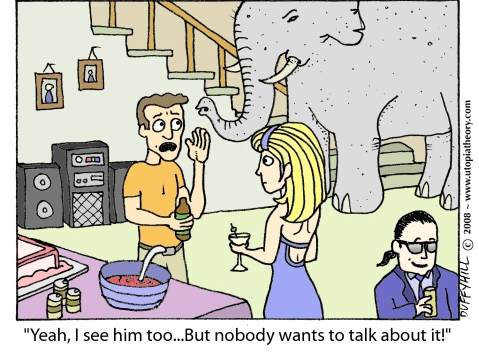Do you dread gathering with your family and friends for holidays, weddings, funerals and other events? Or have you been blessed with a truly loving and nurturing family? Dysfunctional childhood and family dynamics have a way resurfacing and making us feel crazy, trapped, and wanting to run for the hills.
If this sounds familiar, ask yourself these questions to explore the role you play in these dramas:
- Are you consistently kind to everyone?
- Do you reject certain people and favor others?
- Do you hold grudges that have been festering for years?
- Are you one who stands by pretending not to see the elephant in the room? Has it been there for many, many years?
- Do you strive to truly demonstrate loving kindness for everyone there?
- In what ways do you contribute to the discord?
- Do you see yourself as a helpless and innocent victim?
- Are you someone who thinks you are somehow better than everyone else?
- What kind of attitude and behaviors do you contribute?
The term ‘loved ones’ implies special status – our inner circle. Yet, some of us are kinder to total strangers than to those with whom we share our lives.
In many families at least one giant elephant of discord sits in the room. There is a silent conspiracy that everyone participates in pretending not to see it or to do anything to get rid of it. Perhaps there is a drug-addicted child, or an alcoholic parent whose toxicity dominates the experience of being together. Or maybe it is a nasty, judgmental sister, a boring uncle, a nerd, or someone you hold a grudge against.
If this is a familiar experience for you, are you going along with the same old dysfunctional dynamic? Is there something you might do to contribute to healing the situation? It takes courage to go against the tide. Are you willing to name the elephant and to initiate efforts to deal constructively with the negativity? Consider the alternative of letting things continue to fester. Do you really want to forego the possibility of having a mutually respectful and enjoyable time together?
Consider the following example. I know one family with two sisters and a brother in the middle. They have put up with the older sister’s judgments and rejection of the younger sister for decades.
The elder sister feels that her disdain is justified by her judgments of her sister. The brother plays the peacemaker and maintains separate relationships with his sisters. He initites family gatherings in the hope that this will go away. He tries to be a good sport and acts as though he is unconscious of the feud. Meanwhile, the younger sister suffers through these gatherings. After making numerous attempts to talk to her sister about healing the discord between them, she has withdrawn from family gatherings.
Every family gathering is tainted.
“all the while scarlet thoughts, putrid fantasies, and no love”
-Louis Auchincloss
Consider what is at stake. Why should everyone have to suffer because someone doesn’t like one of the family or group of friends? Why not challenge that person either privately or publicly? Let them know that you do not appreciate or support their behavior. Acknowledge to them that their negativity is toxic for everyone else involved? Why not go on record as being unwilling to support this kind of behavior in the future? Ask the person what they are making more important then loving one another.
Another constructive act is to let the apparent victim know that you care about their well-being and do not approve of the aggressor’s behavior.
As adults we are each responsible for what we create, promote, and allow in our lives. We are accountable for how our behavior affects others – no matter how justifiable we believe our attitudes and behaviors to be.
At the end of the day, we are either contributing to more loving kindness for all involved or more distress and discord.
Is there something you might do differently next time to demonstrate that nothing is more important to you than being loving and kind to one another?
If you would like to know more about me and my work, please explore my website here.






